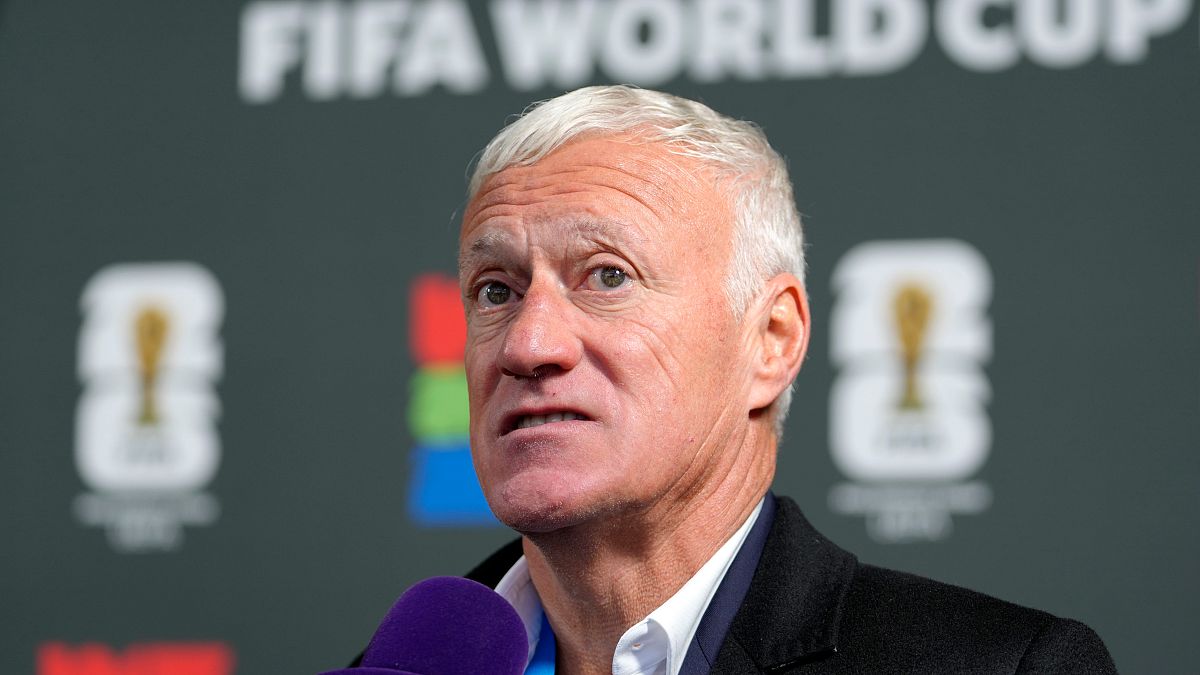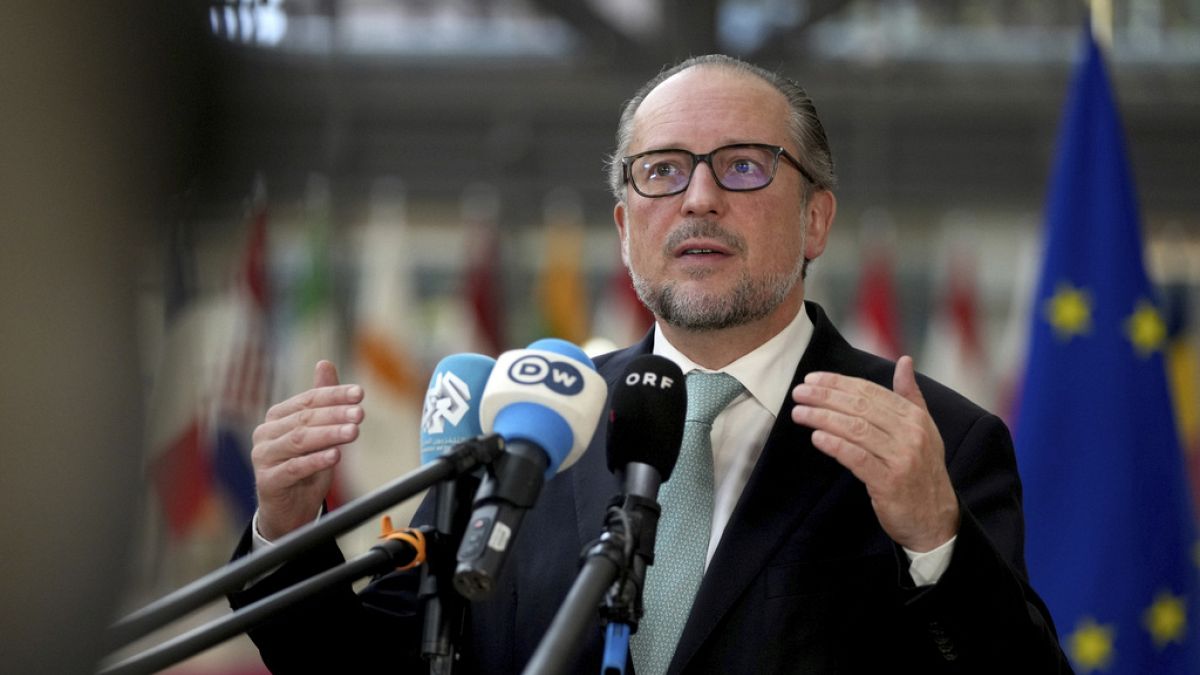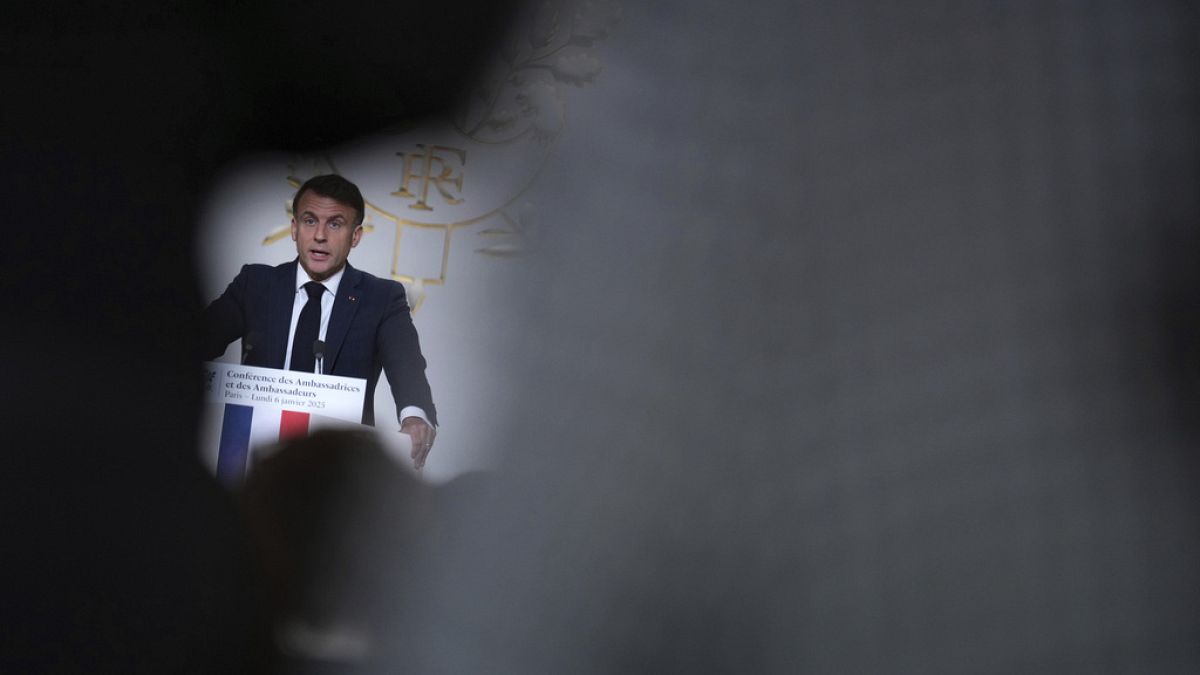Brazilian director Walter Salles discusses his latest film I'm Still Here, why he's moved by Morocco and why cinema is one the best antidotes to AI.
Brazil has never won Best International Feature at the Oscars but Walter Salles, the director of this year's entry, I'm Still Here, has been close before, most notably withThe Motorcycle Diaries.
It's a leading contender for the same honour at this weekend's Golden Globes and some critics say that could just be the start of several triumphs during award season.
Salles' film is a gripping personal story about a family he befriended as a young teenager during the country's military dictatorship and reunites the Brazilian director and screenwriter with his longtime collaborators Fernanda Montenegro and Fernanda Torres.
Euronews Culture met Salles before his recent 'Conversation' masterclass at the Marrakech International Film Festival to discuss his latest work, his views on African cinema and how artificial intelligence is impacting the industry.
What does it mean to you to be here for the 21st edition of the Marrakech International Film Festival?
Walter Salles: Well, first, it means a lot, because if you look at the line up, it's so polyphonic in nature. So you've got films, but also actors, directors coming from different parts of the world. And, just this possibility of encountering and exchanging is incredibly rich. But the second thing is that, I fell in love with, the culture from Morocco through cinema and through music, through a film actually named Trance.
It's a film that, was shot in the 80s, about an extraordinary musician. And, this film was restored in 2007 by the World Cinema Project that Martin Scorsese, you know, created. And, when I saw it, I was completely blown away by it. And the title is so precise because you are in a trance with with Moroccan music and, so to come to come to Morocco also has this kind of emotional meaning to me. You know, it's it's a culture I admire through cinema and again through music.
How would you assess the state of African cinema today? Not only on the continent, but beyond, and what sort of impact is it having?
You know, it reminds me a little bit of what happens in South Africa, you know, in South America now with so many different, currents coming from different regions of the continent. And, you know, cinema has to be polyphonic in nature.
It's about unveiling a part of the world that you're unaware of. And so the more voices there are, the more cinema is actually, doing what it should, which is to be an instrument of, an unveiling and revealing the world. So I'm really fond of discoveries in cinema.
I took a look at the catalog and there’s nine, ten films I would love to see. And those I won't be able to see. I'm going to catch up a little bit later because I love to see films, and this is what keeps my faith, in cinema is to see a first time director’s film that teaches me something I don't know about cinema.
Now, let's talk about your latest project. What can you tell us about it?
So the film, I just finished is called I'm Still Here. It premiered in competition in Venice, in September. And it's a very personal story. It's a story of a family I’m very close to, and that I befriended when I was 13 years old in Brazil, during the military dictatorship.In the house of that family, you had the reverse angle of of the dictatorship.
There was music playing all the time. Political discussions were free. There was light in the house, even the relationship between the people, everything on a tactile, standpoint were different as well, different from what existed in my house. And we were all enamored by what happened there.
Suddenly destiny did strike in that specific house. And the mother of that family, she had five kids, and she had to find a form of resistance or forms of resistance that could allow her to go through, and the whole family to go through that to those dark ages.
So it's a story of reinvention and it's very life affirming. It's about loss. It's about joy first. It's about loss. And it's about reinvention. At the end of the day, it's about hope as well, because you have to believe that there's there's a way out of this mess we're in.
Your film seems to be very human-centric, and comes at a time when a lot of people are concerned with their own jobs and their own livelihoods, especially in the cinema and the movie industry. Some fear being replaced by artificial intelligence. What are your feelings?
I couldn't agree more that this is rampant. This is another thing that is rampant, which is a certain numbness of society due to the excess of images and to the facility with which social media creeps inside everyone's lives. I love humanist cinema that allows me to understand there's just something to be felt, you know, under the skin, on the sensorial, but on the existential standpoint as well. And that awakes you, that says, well, there's a way to look at this in a different manner, and there's a way to think of the world in a different manner. And I think that's one of the roles of cinema and art.
I'm Still Here is on staggered release across Europe from later this month. Read our review here after its premiere at the Venice Film Festival last year.

 5 days ago
3
5 days ago
3






 We deliver critical software at unparalleled value and speed to help your business thrive
We deliver critical software at unparalleled value and speed to help your business thrive






 English (US) ·
English (US) ·